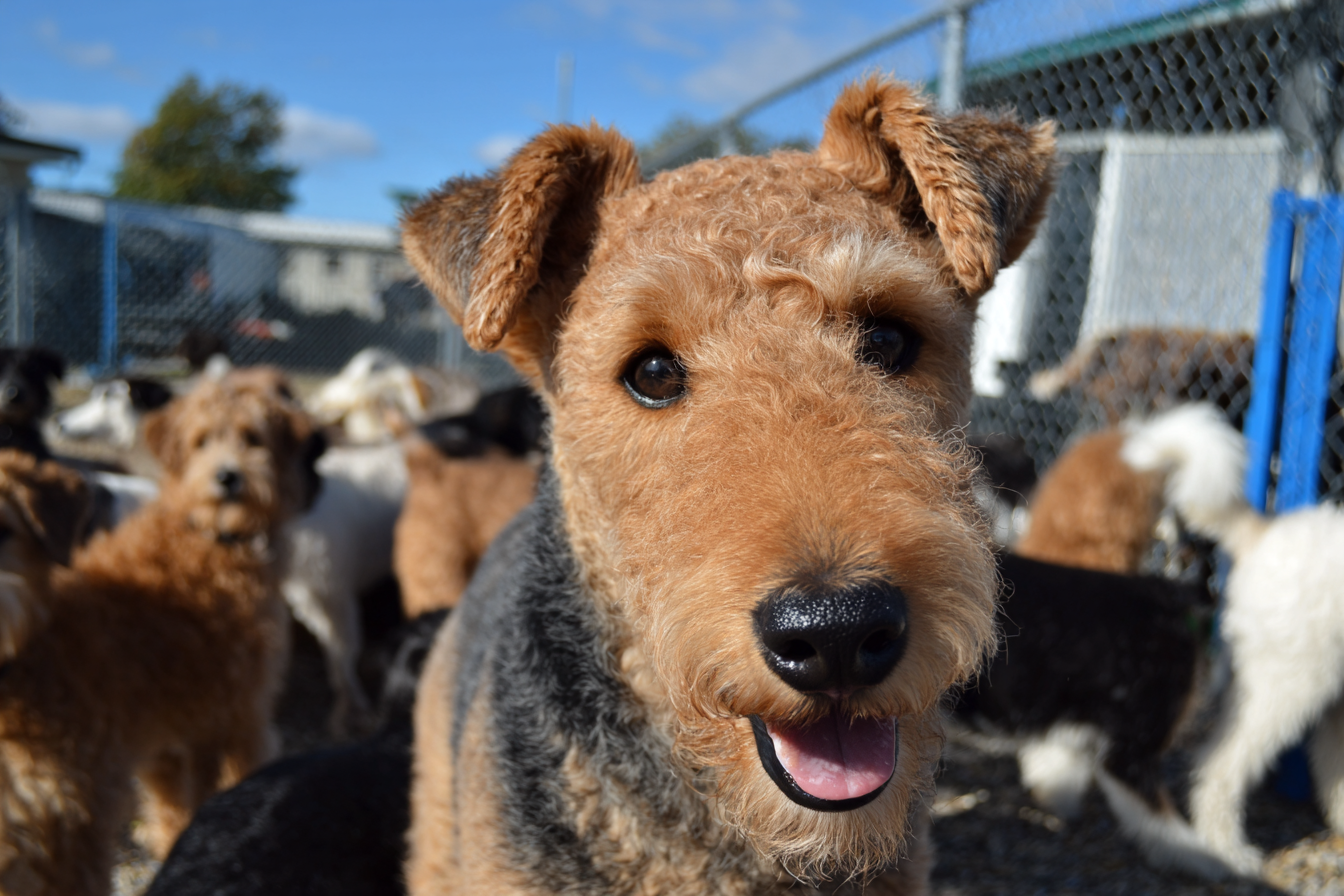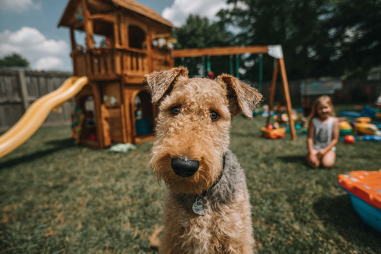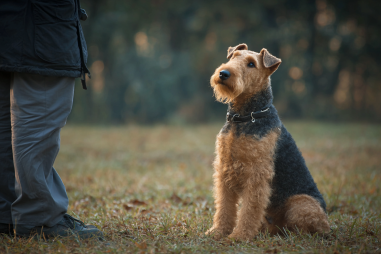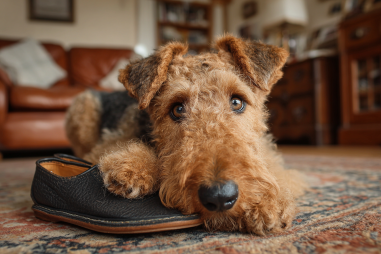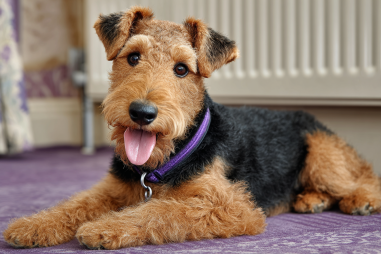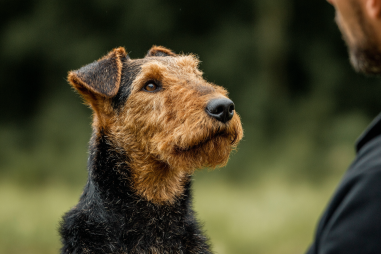Proper socialization is an essential component in raising a well-adjusted and happy Airedale Terrier. Known for their intelligence, confidence, and spirited nature, Airedales thrive when exposed to diverse environments, people, and other animals from an early age. Helping your dog navigate the world with ease not only prevents behavioral issues but also builds a strong bond between you and your furry friend. In this article, we’ll dive into top socialization tips tailored specifically for Airedale Terriers, guiding you through techniques and strategies that promote a well-rounded, sociable companion.
Importance of Early Socialization
Just like humans, dogs develop social skills during their formative months, often referred to as the critical socialization period, which generally occurs between 3 and 14 weeks of age. For Airedale Terriers, early socialization is crucial because it sets the foundation for how they will handle new experiences throughout their lives. During this period, puppies are particularly open to learning about the world around them, making it easier for them to adapt to unfamiliar people, sounds, and situations.
Failing to socialize your Airedale during this key time can result in fearfulness, aggression, or anxiety, which might later be challenging to correct. Introducing your puppy to a variety of sights, sounds, people, animals, and environments equips them with confidence and resilience, promoting a balance between independence and affection. This early investment pays off with a dog that is versatile and comfortable in social settings, whether home, park, or traveling.
Signs of Social Anxiety in Airedales
Like any breed, Airedale Terriers can show signs of stress or social anxiety if they feel overwhelmed or unsure about new experiences. Recognizing these signs early helps you intervene and guide your dog safely through socialization without pushing them too far, too fast.
Common signs of social anxiety include:
- Excessive barking or growling when approached
- Tail tucked between legs or lowered body posture
- Avoidance behaviors such as hiding or backing away
- Excessive licking of lips, yawning, or panting when calm
- Shaking or trembling
- Destructive behavior or hyperactivity in stressful environments
If you notice these signs, it’s important to slow down your socialization efforts and work at a comfortable pace, positive reinforcement can reassure your Airedale and reduce anxiety over time.
Introducing Your Dog to New People
Airedales are naturally friendly but also independent, so helping them warm up to new people requires patience and thoughtful steps. Start with calm, quiet introductions and always let your dog approach on their own terms.
Here’s how to introduce your Airedale to new people effectively:
- Use treats or toys to create positive associations with strangers.
- Encourage strangers to remain calm and avoid sudden movements.
- Allow your dog to sniff and explore at their own pace without pressure.
- Gradually increase exposure by visiting different social settings such as parks, friends’ homes, or safe public places.
- Avoid forcing interactions; respect your dog’s signals and give them space if they seem uncomfortable.
Meeting Other Dogs and Pets
As a spirited and energetic breed, Airedales benefit immensely from socializing with other dogs and pets. Properly introducing your dog to peers helps develop their communication skills, builds confidence, and curbs potential aggression from territorial behavior.
Best practices for introducing your Airedale to other animals include:
- Choose neutral territory to avoid territorial disputes.
- Keep initial meetings short and positive.
- Observe body language closely for play signals versus signs of discomfort or aggression.
- Use on-leash introductions initially, but allow some off-leash play if both dogs appear relaxed and playful.
- Introduce different species in controlled environments to prevent negative experiences.
Using Structured Socialization Settings
Structured classes or controlled socialization groups are perfect for Airedale owners who want guided, safe interactions for their dogs. Puppy socialization classes, training groups, and doggy daycare can provide consistent opportunities to meet new friends under professional supervision.
Benefits of structured settings include:
- Expert guidance on positive social behavior and conflict avoidance.
- Controlled environments that reduce overstimulation or anxiety.
- Regular, scheduled exposures that build routine and reliability.
- Opportunities for socialization combined with obedience and confidence-building exercises.
Make sure to choose reputable programs with knowledgeable instructors familiar with the breed’s temperament and needs.
Handling Fear or Aggression
Not all Airedales take to socialization easily. Some may demonstrate fear-based behaviors or aggression, especially if past experiences have been negative or if they were not socialized early enough. Understanding how to manage these situations is key to helping your dog adjust.
Here are tips to address fear and aggression in socialization:
- Consult a professional dog trainer or behaviorist experienced with Airedales.
- Use positive reinforcement techniques to reward calm and friendly behavior.
- Avoid punishment or harsh corrections that may increase anxiety.
- Desensitize your dog gradually to triggers starting at low intensity.
- Provide safe spaces where your dog can retreat if overwhelmed.
- Teach alternative commands and coping skills to redirect behaviors.
Patience and consistency are critical — with time and appropriate support, many Airedales learn to enjoy social settings without fear or aggression.
Socialization for Puppies vs Adults
While early socialization during puppyhood is ideal, adult Airedales can still benefit from socialization efforts with the right approach. Puppies are typically more adaptable and less fearful, making it easier to expose them to various stimuli and experiences. However, adult dogs may have entrenched behaviors that require more time and careful coaching to modify.
For puppies:
- Expose them to a wide variety of people, animals, sounds, and environments as frequently and positively as possible.
- Make all new experiences fun and rewarding.
- Keep sessions short but frequent to avoid overstimulation.
For adult dogs:
- Assess their current behavior and identify any fear or aggression triggers.
- Start with low-stress socialization opportunities and gradually increase complexity.
- Use rewards-based training to encourage positive interactions.
- Consider professional help if aggression or severe anxiety is present.
Regardless of age, consistent socialization strengthens confidence and adaptability in Airedales.
Toys and Games that Encourage Social Skills
Interactive toys and games can be excellent tools to build your Airedale’s social skills and confidence. Playing together stimulates mental and physical senses, reinforces bonding, and provides opportunities for learning patience and sharing.
Consider these ideas:
- Fetch and Tug-of-War: These games encourage physical coordination and controlled interactions, especially when played with other dogs or family members.
- Puzzle Toys: Engaging your dog’s problem-solving skills reduces stress and promotes calm focus.
- Training with Treats: Use treats to teach commands, rewarding polite behavior around strangers or other animals.
- Group Play Sessions: Supervised play dates with other dogs encourage healthy social boundaries and friendly communication.
Integrating toys and games into socialization keeps the process enjoyable and rewarding.
Long-Term Benefits of Good Socialization
Investing time and effort into your Airedale’s socialization offers lifelong advantages beyond just pleasant interactions. These benefits include:
- Reduced Anxiety and Stress: Socialized dogs are typically calmer and more confident in new or challenging situations.
- Better Behavior: Exposure to diverse stimuli helps prevent aggression, excessive barking, or destructive tendencies.
- Strong Human-Dog Bond: Socialization activities increase trust and communication between you and your dog.
- Safety: A well-socialized dog is easier to manage and less likely to react unpredictably in social or public situations.
- Improved Health: Regular outings and play provide essential physical exercise supporting overall well-being.
Crafting a Practical Socializing Plan for Your Airedale
To effectively socialize your Airedale Terrier, design a consistent, positive plan that suits your dog’s age, temperament, and lifestyle. Below is an approach to consider:
- Start Early: Begin social interactions as soon as your puppy’s vaccinations allow, ideally between 3 and 14 weeks.
- Frequent Exposure: Introduce new people, dogs, environments, and sounds regularly but in manageable doses.
- Positive Reinforcement: Reward calm and friendly behavior using treats, praise, and affection.
- Structured Activities: Enroll in puppy classes, training sessions, or group dog walks.
- Monitor and Adjust: Watch your dog’s body language and comfort levels. Slow down or seek professional help if needed.
- Maintain Socialization: Continue with social activities well beyond puppyhood to reinforce good habits.
By following these steps, you’ll nurture a confident, sociable, and happy Airedale Terrier who thrives in a variety of social situations.
Socialization is a rewarding journey that enhances the life of both you and your Airedale Terrier. With patience, consistency, and love, you can help your dog navigate the world confidently while building a lasting and fulfilling bond. Remember, every Airedale is unique, so tailor your approach to best suit your companion’s needs and personality.

